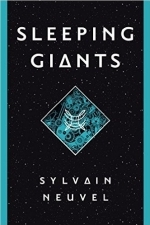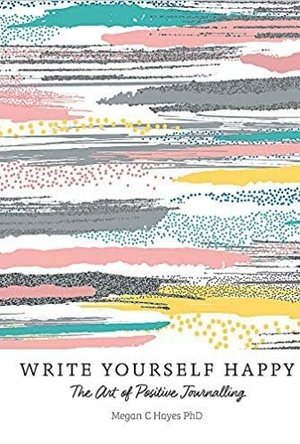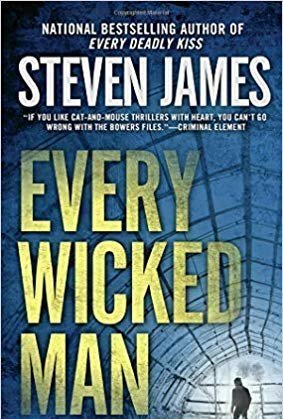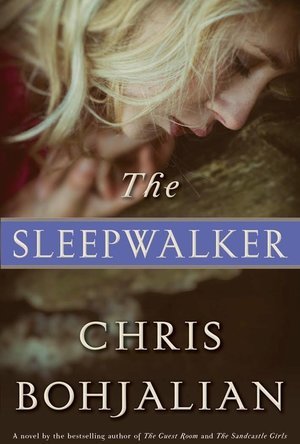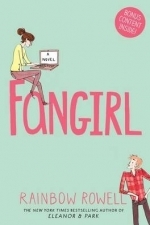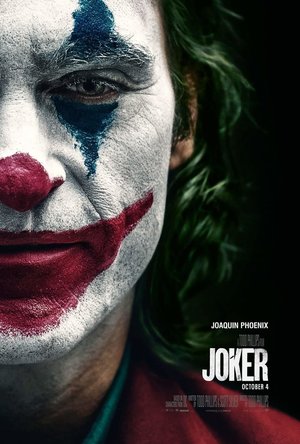Search
Search results
Rachel King (13 KP) rated Finding the Light of Jesus in Books
Feb 11, 2019
When I first started to read this book, I realized very quickly how simply written this book is. The first ten chapters read as if I were sitting in a therapy session with the author and she were talking to me. They are written without much emphasis on detail, and seemed to focus largely on how a person feels in regards to stress and depression. Though the author writes extensively on the light of Jesus, she does not quote a single Bible verse, though she attempts to paraphrase a few - without citations. The beginning and end of each of these ten chapters also contain a poem she wrote and calls prayers, though the poetry is badly written and has little resemblance to an actual prayer, in my opinion. Also scattered through the chapters are activities that the author recommends for the reader, such as journaling and answering questions.
The final chapter is actually a collection of prayers and reflections that the reader is supposed to follow over the course of seven days. This is followed by a section of "Conversations With Jesus" that focus on different topics such as anger, jealousy, being overwhelmed, and fear. This is followed by five pages in which she quotes a scripture from the New American Bible, and leaves a blank space for the reader to journal the answers to her questions about the scripture verse. This is followed by more of her prayers and a further 30 days of prayer and reflection.
Overall, the author presents a Jesus that is only concerned about a person's feelings, whom the author seems to believe that everyone has inside of him or her from birth. She further indicates that everyone goes to heaven, and Jesus' strongest quality is being a "light." No mention is made of the basic precepts of Bible-based Christianity, such as sin, salvation, and the resurrection of Jesus Christ. Instead she writes things that seem to contradict parts of scripture, such as stating that Jesus does not judge us and that we are the "light," as well as what I previously mentioned about everyone going to heaven. In the context of that paragraph, I almost expected the author to write that we are all Jesus. I also noticed while reading that nowhere does she ever refer to Him as Jesus Christ either. The entire book has a vague New Age feel, as many of the things Tuttle writes mimic the doctrine of a New Age Jesus.
The author, Cindy Tuttle, has a background of working in the mental health industry for more than twenty-five years. Based on what I have read in this book, I have no doubt that she is good at her job and finds great success with her patients, but I do not find this book of the same calibur.
The final chapter is actually a collection of prayers and reflections that the reader is supposed to follow over the course of seven days. This is followed by a section of "Conversations With Jesus" that focus on different topics such as anger, jealousy, being overwhelmed, and fear. This is followed by five pages in which she quotes a scripture from the New American Bible, and leaves a blank space for the reader to journal the answers to her questions about the scripture verse. This is followed by more of her prayers and a further 30 days of prayer and reflection.
Overall, the author presents a Jesus that is only concerned about a person's feelings, whom the author seems to believe that everyone has inside of him or her from birth. She further indicates that everyone goes to heaven, and Jesus' strongest quality is being a "light." No mention is made of the basic precepts of Bible-based Christianity, such as sin, salvation, and the resurrection of Jesus Christ. Instead she writes things that seem to contradict parts of scripture, such as stating that Jesus does not judge us and that we are the "light," as well as what I previously mentioned about everyone going to heaven. In the context of that paragraph, I almost expected the author to write that we are all Jesus. I also noticed while reading that nowhere does she ever refer to Him as Jesus Christ either. The entire book has a vague New Age feel, as many of the things Tuttle writes mimic the doctrine of a New Age Jesus.
The author, Cindy Tuttle, has a background of working in the mental health industry for more than twenty-five years. Based on what I have read in this book, I have no doubt that she is good at her job and finds great success with her patients, but I do not find this book of the same calibur.
This book takes a Biblical viewpoint of how the modern woman can lead the best life she can attain while still following the guidelines of the Bible and living up to her personal potential. It uses the personal examples of the two authors, as well as the examples of numerous others that these two have interacted with over the course of writing the book. A systematic approach is taken to break down the history, statistics, and advantages of the modern woman before studiously approaching the Biblical model of the female.
One of the main focuses of the book is the Biblical mandate to "be fruitful and multiply" and how modern culture has both minimized and scorned this. The authors also focus on the differences between males and females, as well as their different purposes in life. Marriage is also a central theme in the book, with the authors providing lots of advice, as well as suggestions to study other resources, in order to find a husband and maintain a healthy marriage.
To stress certain points throughout the book, the authors provide a visual illustration of the concepts discussed. They summarize the lessons taught in certain sections in a "Wise Steps" box, and they fill the book with sections that invite the reader to journal his own thoughts according to a certain topic.
What I found the most interesting about the book was how the authors broke down the multiple purposes of any woman into three categories: our purpose as humans (Core Callings), our purpose as women (Feminine Callings), and our purpose as unique individuals (Personal Callings). Each of these are further broken down, with the Core Callings having the most emphasis throughout the book: Leave and Cleave, Be Fruitful and Multiply, and Subdue and Rule.
I had a difficult time getting through this book, partly because I felt that some of the information provided simply did not apply to me and I did not find it particularly useful. I did agree with most of what the authors interpreted from Biblical scriptures, though I disliked the broad usage of many different Biblical translations. As with any Biblically-based self-help book, the Bible should be the first source and the book should be secondary. I also felt that Feldhahn used the book somewhat as a self-promotional tool, since she often refers to her previously-written book, For Women Only: What You Need to Know about the Inner Lives of Men.
All the same, I appreciated the Biblical perspective and the support of marriage-minded women and stay-at-home moms. There is much wisdom in the pages of this book.
One of the main focuses of the book is the Biblical mandate to "be fruitful and multiply" and how modern culture has both minimized and scorned this. The authors also focus on the differences between males and females, as well as their different purposes in life. Marriage is also a central theme in the book, with the authors providing lots of advice, as well as suggestions to study other resources, in order to find a husband and maintain a healthy marriage.
To stress certain points throughout the book, the authors provide a visual illustration of the concepts discussed. They summarize the lessons taught in certain sections in a "Wise Steps" box, and they fill the book with sections that invite the reader to journal his own thoughts according to a certain topic.
What I found the most interesting about the book was how the authors broke down the multiple purposes of any woman into three categories: our purpose as humans (Core Callings), our purpose as women (Feminine Callings), and our purpose as unique individuals (Personal Callings). Each of these are further broken down, with the Core Callings having the most emphasis throughout the book: Leave and Cleave, Be Fruitful and Multiply, and Subdue and Rule.
I had a difficult time getting through this book, partly because I felt that some of the information provided simply did not apply to me and I did not find it particularly useful. I did agree with most of what the authors interpreted from Biblical scriptures, though I disliked the broad usage of many different Biblical translations. As with any Biblically-based self-help book, the Bible should be the first source and the book should be secondary. I also felt that Feldhahn used the book somewhat as a self-promotional tool, since she often refers to her previously-written book, For Women Only: What You Need to Know about the Inner Lives of Men.
All the same, I appreciated the Biblical perspective and the support of marriage-minded women and stay-at-home moms. There is much wisdom in the pages of this book.
graveyardgremlin (7194 KP) rated Sleeping Giants (Themis Files #1) in Books
Feb 15, 2019
Sleeping Giants is the first book in a new sci-fi series that is told epistolary-style, mostly in interviews and journal entries, with various other reports and articles thrown in for good measure. The basic synopsis is giant alien body parts were strewn across the globe millennia ago and (supposed to be) discreet teams go look for them while our "A-Team" -- as it were -- figures out how it works.
I found the book to be swift, fun, and easy to read, except for a couple of sections that made my eyes cross at trying to visualize the science and math. Readers who are more adept at math would most likely find it easier to grasp. There is also plenty of humor right up my alley, dry oftentimes, with a side of sarcasm. The first character we are introduced to is Rose Franklin, a physicist and the head of the project, who also was the first to stumble upon a body part, quite literally, as a child. I had a hard time getting a feel for her personality as she often is describing or explaining things about the alien robot. The others are Kara Resnik, a helicoptor pilot for the U.S. Army, Ryan Mitchell, also a pilot of the Army, Vincent Couture, a linguist of a sort, Alyssa Papantoniou, a geneticist, and an unnamed interviewer who I dubbed The Handler. Kara is one of the best characters as she really comes to life in the text. She provides most of the sarcasm and is prickly to boot. So I won't give anything away, I enjoyed the different personalities as they came together and interact, although it's not the usual sort of interactions since the story isn't traditionally told. However, by far, my favorite character is The Handler as he is dry and witty in a very subtle way. Nothing personal is mentioned about him, or at least not much, but his exchanges with everyone are highly enjoyable and amusing.
I don't have anything really bad to say about Sleeping Giants, but it did have a slightly slow start as it was more info-dumpy than I'd like, and I thought there was a little too much personal relationship issues brought into it. Those are only little nit-picky things, and on the whole, I don't mind them. During my reading I couldn't help but think numerous times that this would make an awesome tv series, it's just ripe with imagery that would totally work in that medium. In fact, it reminded me of Stargate SG-1 on occasion. I'm a bit put out that I want to read the next book immediately and the first hasn't even come out yet. If you're into sci-fi with a bit of a humor and mystery, I'd definitely recommend giving it a read.
I found the book to be swift, fun, and easy to read, except for a couple of sections that made my eyes cross at trying to visualize the science and math. Readers who are more adept at math would most likely find it easier to grasp. There is also plenty of humor right up my alley, dry oftentimes, with a side of sarcasm. The first character we are introduced to is Rose Franklin, a physicist and the head of the project, who also was the first to stumble upon a body part, quite literally, as a child. I had a hard time getting a feel for her personality as she often is describing or explaining things about the alien robot. The others are Kara Resnik, a helicoptor pilot for the U.S. Army, Ryan Mitchell, also a pilot of the Army, Vincent Couture, a linguist of a sort, Alyssa Papantoniou, a geneticist, and an unnamed interviewer who I dubbed The Handler. Kara is one of the best characters as she really comes to life in the text. She provides most of the sarcasm and is prickly to boot. So I won't give anything away, I enjoyed the different personalities as they came together and interact, although it's not the usual sort of interactions since the story isn't traditionally told. However, by far, my favorite character is The Handler as he is dry and witty in a very subtle way. Nothing personal is mentioned about him, or at least not much, but his exchanges with everyone are highly enjoyable and amusing.
I don't have anything really bad to say about Sleeping Giants, but it did have a slightly slow start as it was more info-dumpy than I'd like, and I thought there was a little too much personal relationship issues brought into it. Those are only little nit-picky things, and on the whole, I don't mind them. During my reading I couldn't help but think numerous times that this would make an awesome tv series, it's just ripe with imagery that would totally work in that medium. In fact, it reminded me of Stargate SG-1 on occasion. I'm a bit put out that I want to read the next book immediately and the first hasn't even come out yet. If you're into sci-fi with a bit of a humor and mystery, I'd definitely recommend giving it a read.
Sassy Brit (97 KP) rated Write Yourself Happy: The Art of Positive Journalling in Books
Jun 5, 2019
With the book Write Yourself Happy: The Art of Positive Journalling, Megan C. Hayes reveals just how we can use practical and scientifically proven methods to increase our happiness through journalling. She’s an academic in Positive Psychology and Creative Writing, and that shows via her knowledge and understanding in this well-written and enlightening book.
I enjoy the process of writing and feel like I am quite a creative person. I’ve read many books like this, and ‘Artist’s Way’ by Julia Cameron and the companion workbook , are just two of them, so I was really happy to learn about this, and keen to read it myself.
The first thing I cannot help but tell you is how the cover has been printed in a way that is is raised in some places, making it very tactile. And yes, I can’t help touching it! The second thing I noticed, before I even began to read it, was how the pages inside are as colourful as the front cover, and filled with the same pastel shades within.
I found it quite amazing how we can use diary writing to discover more about ourselves, overcome difficulties and experience a positive way to reflect on our lives through both good and bad times. It makes sense, when you think about it, how talking to someone about problems can help, so why not express yourself in the form of writing? And this is just what this book encourages you to do in a way that we can reflect on our writing to positively assess our day. It’s not about bigging yourself up and writing only positive things, it’s about really letting go and understanding the psychology behind the case studies and ‘take-away’ lessons to practice for yourself.
Megan has an encouraging, reassuring and uplifting tone, and I really enjoy reading about the psychological and beneficial aspects of journalling. The author uses eight of our most commonly experienced and life-affirming emotions to journal about; joy, gratitude, serenity, interest, hope, pride awe and love. Now some of these may sound a bit new-agey and put some of you off, but it’s set out in a down-to-earth way, that I found very inspiring and not preachy at all.
To conclude, I’d like to explain that writing this way is like reading an engrossing book. When you’re totally immersed it’s like you can actually feel the emotions, experiences and senses of your character. In the same way, writing down evokes similar sensations, memories, smells and feelings. It’s no wonder this positive journalling is a scientifically proven way to support our wellbeing, through personal expression and creativity.
Write Yourself Happy is a thoroughly researched, empowering, positive read.
I enjoy the process of writing and feel like I am quite a creative person. I’ve read many books like this, and ‘Artist’s Way’ by Julia Cameron and the companion workbook , are just two of them, so I was really happy to learn about this, and keen to read it myself.
The first thing I cannot help but tell you is how the cover has been printed in a way that is is raised in some places, making it very tactile. And yes, I can’t help touching it! The second thing I noticed, before I even began to read it, was how the pages inside are as colourful as the front cover, and filled with the same pastel shades within.
I found it quite amazing how we can use diary writing to discover more about ourselves, overcome difficulties and experience a positive way to reflect on our lives through both good and bad times. It makes sense, when you think about it, how talking to someone about problems can help, so why not express yourself in the form of writing? And this is just what this book encourages you to do in a way that we can reflect on our writing to positively assess our day. It’s not about bigging yourself up and writing only positive things, it’s about really letting go and understanding the psychology behind the case studies and ‘take-away’ lessons to practice for yourself.
Megan has an encouraging, reassuring and uplifting tone, and I really enjoy reading about the psychological and beneficial aspects of journalling. The author uses eight of our most commonly experienced and life-affirming emotions to journal about; joy, gratitude, serenity, interest, hope, pride awe and love. Now some of these may sound a bit new-agey and put some of you off, but it’s set out in a down-to-earth way, that I found very inspiring and not preachy at all.
To conclude, I’d like to explain that writing this way is like reading an engrossing book. When you’re totally immersed it’s like you can actually feel the emotions, experiences and senses of your character. In the same way, writing down evokes similar sensations, memories, smells and feelings. It’s no wonder this positive journalling is a scientifically proven way to support our wellbeing, through personal expression and creativity.
Write Yourself Happy is a thoroughly researched, empowering, positive read.
Sassy Brit (97 KP) rated Every Wicked Man in Books
Jun 5, 2019
With the book Write Yourself Happy: The Art of Positive Journalling, Megan C. Hayes reveals just how we can use practical and scientifically proven methods to increase our happiness through journalling. She’s an academic in Positive Psychology and Creative Writing, and that shows via her knowledge and understanding in this well-written and enlightening book.
I enjoy the process of writing and feel like I am quite a creative person. I’ve read many books like this, and ‘Artist’s Way’ by Julia Cameron and the companion workbook , are just two of them, so I was really happy to learn about this, and keen to read it myself.
The first thing I cannot help but tell you is how the cover has been printed in a way that is is raised in some places, making it very tactile. And yes, I can’t help touching it! The second thing I noticed, before I even began to read it, was how the pages inside are as colourful as the front cover, and filled with the same pastel shades within.
I found it quite amazing how we can use diary writing to discover more about ourselves, overcome difficulties and experience a positive way to reflect on our lives through both good and bad times. It makes sense, when you think about it, how talking to someone about problems can help, so why not express yourself in the form of writing? And this is just what this book encourages you to do in a way that we can reflect on our writing to positively assess our day. It’s not about bigging yourself up and writing only positive things, it’s about really letting go and understanding the psychology behind the case studies and ‘take-away’ lessons to practice for yourself.
Megan has an encouraging, reassuring and uplifting tone, and I really enjoy reading about the psychological and beneficial aspects of journalling. The author uses eight of our most commonly experienced and life-affirming emotions to journal about; joy, gratitude, serenity, interest, hope, pride awe and love. Now some of these may sound a bit new-agey and put some of you off, but it’s set out in a down-to-earth way, that I found very inspiring and not preachy at all.
To conclude, I’d like to explain that writing this way is like reading an engrossing book. When you’re totally immersed it’s like you can actually feel the emotions, experiences and senses of your character. In the same way, writing down evokes similar sensations, memories, smells and feelings. It’s no wonder this positive journalling is a scientifically proven way to support our wellbeing, through personal expression and creativity.
Write Yourself Happy is a thoroughly researched, empowering, positive read.
I enjoy the process of writing and feel like I am quite a creative person. I’ve read many books like this, and ‘Artist’s Way’ by Julia Cameron and the companion workbook , are just two of them, so I was really happy to learn about this, and keen to read it myself.
The first thing I cannot help but tell you is how the cover has been printed in a way that is is raised in some places, making it very tactile. And yes, I can’t help touching it! The second thing I noticed, before I even began to read it, was how the pages inside are as colourful as the front cover, and filled with the same pastel shades within.
I found it quite amazing how we can use diary writing to discover more about ourselves, overcome difficulties and experience a positive way to reflect on our lives through both good and bad times. It makes sense, when you think about it, how talking to someone about problems can help, so why not express yourself in the form of writing? And this is just what this book encourages you to do in a way that we can reflect on our writing to positively assess our day. It’s not about bigging yourself up and writing only positive things, it’s about really letting go and understanding the psychology behind the case studies and ‘take-away’ lessons to practice for yourself.
Megan has an encouraging, reassuring and uplifting tone, and I really enjoy reading about the psychological and beneficial aspects of journalling. The author uses eight of our most commonly experienced and life-affirming emotions to journal about; joy, gratitude, serenity, interest, hope, pride awe and love. Now some of these may sound a bit new-agey and put some of you off, but it’s set out in a down-to-earth way, that I found very inspiring and not preachy at all.
To conclude, I’d like to explain that writing this way is like reading an engrossing book. When you’re totally immersed it’s like you can actually feel the emotions, experiences and senses of your character. In the same way, writing down evokes similar sensations, memories, smells and feelings. It’s no wonder this positive journalling is a scientifically proven way to support our wellbeing, through personal expression and creativity.
Write Yourself Happy is a thoroughly researched, empowering, positive read.
Kristy H (1252 KP) rated The Sleepwalker in Books
Feb 13, 2018
Lianna Ahlberg has always known that her mother, Annalee, is a sleepwalker. So when Annalee goes missing, her family immediately assumes she has vanished while sleepwalking. After all, Lianna once pulled her naked mother off a bridge near the river by their home. A scrap of her nightshirt is found near that same river, and everyone assumes the worst. College-aged Lianna, her twelve-year-old sister, Paige, and their father, Warren, must grapple with a life without this loving mother and wife. Still, the police, including detective Gavin Rikert, continue to probe into Annalee's disappearance. And so does her family. Lianna finds herself learning more about her mother, her parents' marriage, and her family's history of sleepwalking. She also finds herself drawn to Gavin, who knew her mother before she disappeared. Where is Annalee, or her body? And what really happened that night?
This story is almost a treatise in the facts of sleepwalking, or parasomnia. It is told from Lianna's point of view, but interspersed with odd snippets from a journal (or something, we aren't sure) with facts, thoughts, and ruminations about sleepwalking. It's also a very (very) slow-building mystery as we discover what happened to Annalee Ahlberg (as Lianna calls her repeatedly throughout the novel - something that bothered me. Just call her mom!). The novel certainly has some intrigue, but man, it's a slow buildup, and while I liked Lianna and Paige, I wasn't fully part of their world, and I didn't find myself rushing to read this book; it took me five or so days to finish it, which is a lot for me. Now I read it over the holidays, and I wasn't feeling well (not its fault), but still.
Furthermore, the book details a lot of odd plot threads that never seem to fully connect. I often found myself wondering if it was interesting, or just dragging on. Having Lianna tell the story as she's looking back in time was also an odd storytelling device, as it just allowed for weird, pointless inserts (e.g., ruminating about how she never used condoms).
By the time we get to the ending, it is somewhat surprising, but almost a little frustrating. So much buildup for very little resolution, and then the novel is over. In a way, I feel as if Bohjalian suffered (for me) from his greatness; I've loved so many of his other novels and characters that this one just fell a bit flat. It was interesting premise, and not a bad read, but certainly not my favorite of his.
I received a copy of this novel from the publisher and Edelweiss (thank you!); it is available everywhere as of 1/10/2017.
This story is almost a treatise in the facts of sleepwalking, or parasomnia. It is told from Lianna's point of view, but interspersed with odd snippets from a journal (or something, we aren't sure) with facts, thoughts, and ruminations about sleepwalking. It's also a very (very) slow-building mystery as we discover what happened to Annalee Ahlberg (as Lianna calls her repeatedly throughout the novel - something that bothered me. Just call her mom!). The novel certainly has some intrigue, but man, it's a slow buildup, and while I liked Lianna and Paige, I wasn't fully part of their world, and I didn't find myself rushing to read this book; it took me five or so days to finish it, which is a lot for me. Now I read it over the holidays, and I wasn't feeling well (not its fault), but still.
Furthermore, the book details a lot of odd plot threads that never seem to fully connect. I often found myself wondering if it was interesting, or just dragging on. Having Lianna tell the story as she's looking back in time was also an odd storytelling device, as it just allowed for weird, pointless inserts (e.g., ruminating about how she never used condoms).
By the time we get to the ending, it is somewhat surprising, but almost a little frustrating. So much buildup for very little resolution, and then the novel is over. In a way, I feel as if Bohjalian suffered (for me) from his greatness; I've loved so many of his other novels and characters that this one just fell a bit flat. It was interesting premise, and not a bad read, but certainly not my favorite of his.
I received a copy of this novel from the publisher and Edelweiss (thank you!); it is available everywhere as of 1/10/2017.
Sophie Wink (11 KP) rated Fangirl in Books
Jun 20, 2019
"Fangirl is a deliciously warm-hearted nerd power ballad destined for greatness" - New York Journal of Books
I really couldn't agree more! I just loved the book inside and out, it is beautifully written.
The storyline as a whole is great and conveyed wonderfully. I really like how it is relatable for many teenagers, like myself, who may be going to University, leaving home and having to make new friends. It is very well done indeed. I love the overarching theme of family and loyalty, I think it really molds the story and the characters too, for me personally family and friends are incredibly important and it is nice to see a true projection of that within a novel as it allows me to connect with the characters and really feel for them.
I love all of the characters! Cath has such a beautiful soul, I can't help but admire her loyalty and innocence. I really love how she stays true to herself throughout the book, she doesn't try to be something she is not adding to her likability. Sometimes within novels the slow development of a character, for me, can be quite boring and uninteresting but with Cath I think it fits perfectly as it would be out of her nature to develop so quickly, she takes things slowly and at her own pace which I really love. I think the fact that Wren tries to be cooler and popular works really well especially when she realises that she is just as much of a nerd as her sister. The twins' ongoing battle with their mother is really beautifully done, and in ways quite unexpected as you would think that Cath would be the accepting one and Wren the more stubborn but it is the opposite, I think it works perfectly and doesn't detract from either character. I really connected with the characters and truly felt for them whether it be sympathy, anger or joy. I enjoyed the slow, blossoming love between Cath and Levi, it made me smile and feel warm inside. It is really sweet and written in such a subtle way with a slower development fitting to both Cath and Levi's character.
I like the quirkiness of this novel, I don't think I've ever read a book that has its own little book inside it. It is incredibly unique and worked fantastically well, I loved it. I think being able to see and read what the twins, mainly Cath, poured their heart and soul into really helped with the connection I felt as a reader towards these characters as I could see the passion and the effort. It's a fascinatingly imaginative concept of which I completely adore.
Overall, this novel is amazing, imaginative and incredibly charming.
I really couldn't agree more! I just loved the book inside and out, it is beautifully written.
The storyline as a whole is great and conveyed wonderfully. I really like how it is relatable for many teenagers, like myself, who may be going to University, leaving home and having to make new friends. It is very well done indeed. I love the overarching theme of family and loyalty, I think it really molds the story and the characters too, for me personally family and friends are incredibly important and it is nice to see a true projection of that within a novel as it allows me to connect with the characters and really feel for them.
I love all of the characters! Cath has such a beautiful soul, I can't help but admire her loyalty and innocence. I really love how she stays true to herself throughout the book, she doesn't try to be something she is not adding to her likability. Sometimes within novels the slow development of a character, for me, can be quite boring and uninteresting but with Cath I think it fits perfectly as it would be out of her nature to develop so quickly, she takes things slowly and at her own pace which I really love. I think the fact that Wren tries to be cooler and popular works really well especially when she realises that she is just as much of a nerd as her sister. The twins' ongoing battle with their mother is really beautifully done, and in ways quite unexpected as you would think that Cath would be the accepting one and Wren the more stubborn but it is the opposite, I think it works perfectly and doesn't detract from either character. I really connected with the characters and truly felt for them whether it be sympathy, anger or joy. I enjoyed the slow, blossoming love between Cath and Levi, it made me smile and feel warm inside. It is really sweet and written in such a subtle way with a slower development fitting to both Cath and Levi's character.
I like the quirkiness of this novel, I don't think I've ever read a book that has its own little book inside it. It is incredibly unique and worked fantastically well, I loved it. I think being able to see and read what the twins, mainly Cath, poured their heart and soul into really helped with the connection I felt as a reader towards these characters as I could see the passion and the effort. It's a fascinatingly imaginative concept of which I completely adore.
Overall, this novel is amazing, imaginative and incredibly charming.
JT (287 KP) rated Joker (2019) in Movies
Mar 10, 2020
This is the film of the year for me. A comic book adaptation like no other. Thought-provoking and difficult to watch it conveys more than just the transformation from abnormal loner to one of the greatest comic villains ever. Joaquin Phoenix’s performance goes some way to matching the psychotic heights of Heath Ledger’s incarnation in The Dark Knight. Ledger was posthumously awarded an Oscar for that performance and I would expect Phoenix to be front and centre when award season comes around.
Arthur Fleck is a clown for hire. Scraping to make ends meet while looking after his ailing mother (Frances Conroy) he has ambitions of making it as a stand-up comedian. Sadly his narcissistic personality and uncontrollable fits of laughter (through no fault of his own) make him a target for society. Gotham City is an unforgiving place and for Arthur, it is a constant struggle of acceptance. He’s belittled and beaten down at every turn and he’s not strong enough to fight back. The bruises on his skeletal frame are a testament to this. He’s an awkward character not least because his quiet personality simmers beneath someone ready to explode – and explode he does.
A comic book adaptation like no other it’s thought-provoking and difficult to watch
But Arthur is sick. That much is clear. Society no longer wants to help. As a result, his social worker explains that the city has cut all funding and the facility and access to his medication he relies on will stop – “All I have are negative thoughts,” he says. When the brutality takes a serious turn he unwittingly becomes a figurehead for Gotham’s society. The clown is a symbol of defiance. Fighting against the rich, of all people Thomas Wayne, who is running for Mayor. Wayne becomes wrapped up in a storyline that brings Arthur together with a familiar young face.
The strong comparisons to Taxi Driver are unavoidable, but there is a definite Scorsese feel to the film. The casting of Robert De Niro as talk show host Murray Franklin is almost a direct nod to King of Comedy in which De Niro stalks and kidnaps his idol to take the spotlight for himself. Here it’s Arthur who lovingly worships Murray. The build up to the clown prince of crime is worth the wait as the transformation builds up to a frenetic and gruesome final act.
One of the biggest takeaways from Joker is its focus on mental illness. Arthur’s battered notebook is not only a journal for his jokes but for his dark thoughts. This is a topic that will hit close to home for many people who might experience similar, with an outward animosity to society.
Arthur Fleck is a clown for hire. Scraping to make ends meet while looking after his ailing mother (Frances Conroy) he has ambitions of making it as a stand-up comedian. Sadly his narcissistic personality and uncontrollable fits of laughter (through no fault of his own) make him a target for society. Gotham City is an unforgiving place and for Arthur, it is a constant struggle of acceptance. He’s belittled and beaten down at every turn and he’s not strong enough to fight back. The bruises on his skeletal frame are a testament to this. He’s an awkward character not least because his quiet personality simmers beneath someone ready to explode – and explode he does.
A comic book adaptation like no other it’s thought-provoking and difficult to watch
But Arthur is sick. That much is clear. Society no longer wants to help. As a result, his social worker explains that the city has cut all funding and the facility and access to his medication he relies on will stop – “All I have are negative thoughts,” he says. When the brutality takes a serious turn he unwittingly becomes a figurehead for Gotham’s society. The clown is a symbol of defiance. Fighting against the rich, of all people Thomas Wayne, who is running for Mayor. Wayne becomes wrapped up in a storyline that brings Arthur together with a familiar young face.
The strong comparisons to Taxi Driver are unavoidable, but there is a definite Scorsese feel to the film. The casting of Robert De Niro as talk show host Murray Franklin is almost a direct nod to King of Comedy in which De Niro stalks and kidnaps his idol to take the spotlight for himself. Here it’s Arthur who lovingly worships Murray. The build up to the clown prince of crime is worth the wait as the transformation builds up to a frenetic and gruesome final act.
One of the biggest takeaways from Joker is its focus on mental illness. Arthur’s battered notebook is not only a journal for his jokes but for his dark thoughts. This is a topic that will hit close to home for many people who might experience similar, with an outward animosity to society.
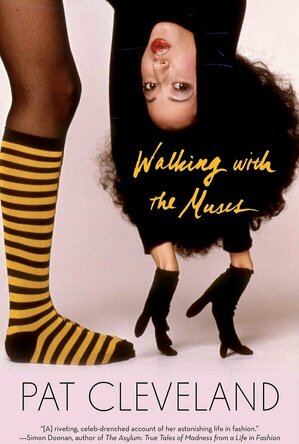
Walking with the Muses: A Memoir
Book
"Taking her reader through fifty years of fashion from the intersection of the Civil Rights...
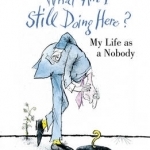
What am I Still Doing Here?: My Life as Me
Book
'Unremittingly glorious. I and the world demand more and we shall thump our tin mugs on the table...

